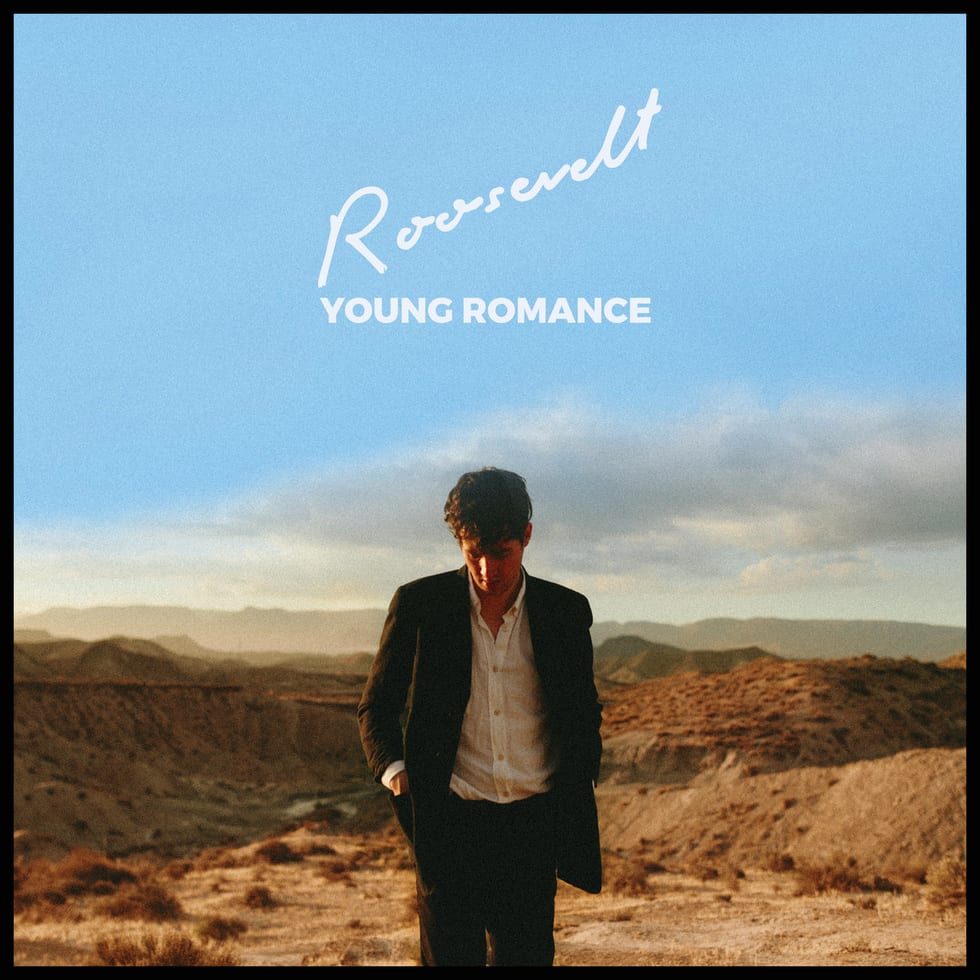
Look at Roosevelt and you can see many things: a nu-disco hipster, a hopeless romantic, a wunderkind draped in neon. Listen to him, and what comes to mind is more singular. Whether he’s covering his idols (Womack & Womack’s “Teardrops”), remixing his peers (Chrvrches, Sundara Karma, Rhye), or writing his own material, his aesthetic is instantly identifiable. It’s an aesthetic that can be summarized through sonic signifiers like club-ready drums and sky-scraping synthesizers that swell, then retreat, only to swell again. However, this aesthetic is best understood by the images that it conjures: bright lights under a full moon, endless nightscapes, kids dancing in alleyways.
“Fever”, the standout track from Roosevelt’s debut eponymous LP, holds all of these images within it, and then some. The soaring synth hook that surrounds the chorus — that engulfs it brings it upward toward some shifting polychromatic constellation of stars, strobe lights, and shadows — is a synesthetic head-trip. Listening, you can see the desire in the music; you can see a heartbeat racing that is not your own.
“Bring back the fever / Again,” Roosevelt sings, and in that “again”, you can hear that the song isn’t just a lament for the loss of a feeling. Like the best pop, it’s a celebration — a celebration of “fever” as a sensation of blood boiling beneath the skin, not from sickness, but from lust and excitement at its highest pitch. It’s a celebration of the “fever” from Eddie Cooley and Otis Blackwell’s “Fever”, which was first recorded by American R&B singer Little Willie John in 1956 and later made famous by Peggy Lee, and, then, even more famous by Elvis on his 1960 Elvis Is Back! record. “When you put your arms around me / I get a fever that’s so hard to bear.” Who wouldn’t want this “fever” back again?
On his sophomore LP Young Romance, Roosevelt, whose real name is Marius Lauber, never recaptures the effortless perfection of “Fever”. But, he tries, and trying, for a producer-musician as gifted as Lauber, goes a long way. His ’80s-indebted yet EDM-inflected confections, while not always as anthemic as he wants them to be, are almost uniformly infectious. The album’s first single, “Under the Sun”, begins with a tessellating synth riff that, true to the track’s title, seems tailor-made for sun-kissed festival-goers who just want to throw their hands in the air. “Losing Touch” sounds like a song that St. Lucia would love to have written.
“Paul McCartney once said that the best pop song isn’t written yet, and I think that’s quite a clever statement,” Lauber said. “That’s how I feel, also. That wasn’t the only challenge on this record, but somehow it really excited me: the drive to make really excellent pop music. It’s a big challenge, but I really wanted to see my music survive in a more mainstream environment, without losing any authenticity, or having to make any compromises.”
Tom Krell, the singer and producer behind the critical-darling R&B project How to Dress Well, once said that he wanted to make music that was “pop, but not populist”, and Lauber’s ambitions are identical. On Young Romance, these ambitions course throughout the music, and, at times, you can feel Lauber straining to live up to them. “Shadows” has a limp funk groove and a chorus that wants to be big — to soar, like the chorus of “Fever”, or to enrapture, like the chorus of “Night Moves”, the other masterwork on Lauber’s first LP — but that sounds meek and small. Meanwhile, even with help from chill-wave figurehead Washed Out, “Forgive” is filler at its least inspired.
Then, you hear “Lucia”, and the fruits of Lauber’s “drive to make really excellent pop music” are manifest. It’s pop — the kind of pop that only Roosevelt could make, erudite pop, pop with influences are wide-ranging as Pet Shop Boys and Hot Chip — but it’s not populist. It wouldn’t crack the Top 40, or even approach it, because it sounds like nothing else out there. The bass cracks and bursts, forming a riff so captivating that you will swear you’ve heard it somewhere before. The synth subsumes everything around it. The drums pummel. “She’s been roaming around / Calling me up,” Lauber sings, his voice resounding like a shy boy with good manners but dark, sex-filled fantasies. Like the best of his music, the song causes something to start swelling inside of you, something warm and pervasive, something like a fever.


![Call for Papers: All Things Reconsidered [MUSIC] May-August 2024](https://www.popmatters.com/wp-content/uploads/2024/04/all-things-reconsidered-call-music-may-2024-720x380.jpg)



